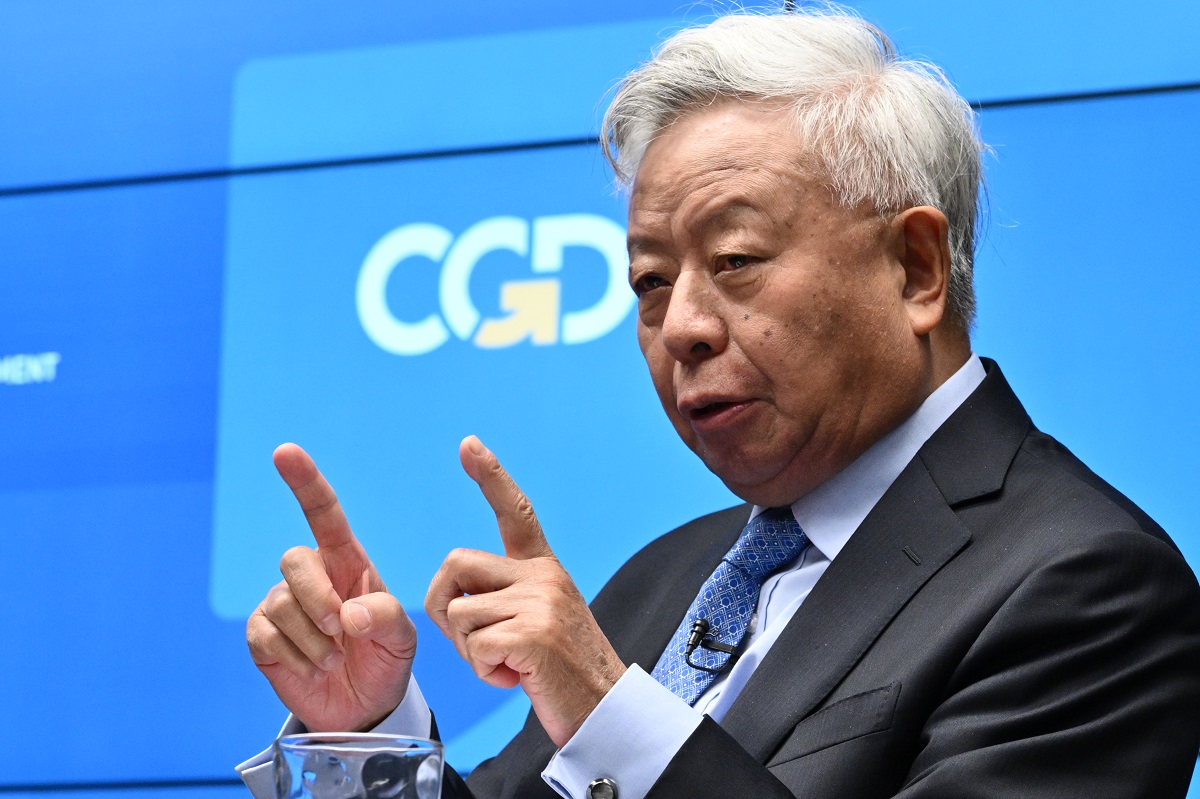This is a joint posting with former CGD special assistant Rena Pacheco-Theard
Last week, CGD was honored to host Tanzanian President Jakaya Mrisho Kikwete and senior officials in his government for a discussion with a small group of development experts on Tanzania's recent education and malaria control activities.The importance that the government places on core social sectors is unmistakable – and continues a long Tanzanian tradition. Minister for Education and Vocational Training, Jumanne Maghembe, noted that, "Education is the highest priority, and the foundation of any social development venture." In fact, the education sector – primarily teacher salaries – accounts for a full 17% of the national budget. Over the past few years, the country has consolidated progress toward universal primary education and has increased secondary school enrollment by two and a half times (from a very low base). The Minister also reported on expansion in post-secondary education, including universities and vocational training centers. Attention is also being given to the early years. Zanzibar's Minister of Education, Haroun Ali Suleiman, stressed the importance of pre-primary education.As the sector expands, the challenges are profound. The most obvious is the shortage of teachers. Historically, secondary schooling has been so limited that there simply aren't enough graduates to train as teachers. In response, at least for the near term, the government has implemented programs to bring in teachers with non-traditional training, and is looking at distance education technologies.Education quality is also problematic, with many children unable to pass a rigorous exam at the end of their fourth year of primary school. President Kikwete acknowledged the need to address quality issues, and noted that progress has at least been made in access to textbooks. Not so long ago, one textbook was shared by an average of 10 students; now, thanks in part to support from the U.S., the ratio is one textbook for every three students.During the discussion, one of the ideas discussed was CODA: Cash on Delivery Aid (
an initiative of the Center) - a way to transfer unearmarked financial resources from donors upon successful completion of agreed upon performance targets in the education sector.The conversation then turned to malaria control, where Tanzania has a distinct success to highlight. As one of the first three focus countries benefiting from the U.S. President's Malaria Initiative (
PMI), Tanzania has experienced tremendous success in combating the disease, particularly in Zanzibar where the prevalence rate has declined from 30% to 1%. Green noted that
recently passed legislation will help to sustain the success of this program and to extend the progress to the Tanzanian mainland.Robert Newman, Deputy Malaria Branch Chief at the
Centers for Disease Control, a PMI implementing agency, described a novel public-private partnership with Selcom Wireless, in which Tanzanian health workers use cell phones to report data on a weekly basis, facilitating a rapid response and detection system – key to malaria control.Once again, as has been the case many times in the past, Tanzania is one of Africa's most visible examples of a country that uses relatively large amounts of donor assistance to bolster its national commitment to improve social welfare. Tanzania receives U.S. support from the Millennium Challenge Account, PEPFAR and PMI, as well as other bilateral aid programs. Tanzania also is the beneficiary of a record-setting number of development initiatives from other donors (for 2004-2006, Tanzania had
aid commitments for 4,029 projects, and the nation received
$1,674.29 million in aid in 2006 – making it one of the top eight country aid recipients in the world).President Kikwete made a compelling case that his government is trying to make the best use of the resources – and gently suggested that more would be welcome; there are positive health and education results to point to. The question for the development community is whether Tanzania's many friends are doing the most they can, both in the amount and the orientation of resources, to support government priorities.
CGD blog posts reflect the views of the authors, drawing on prior research and experience in their areas of expertise.
CGD is a nonpartisan, independent organization and does not take institutional positions.



